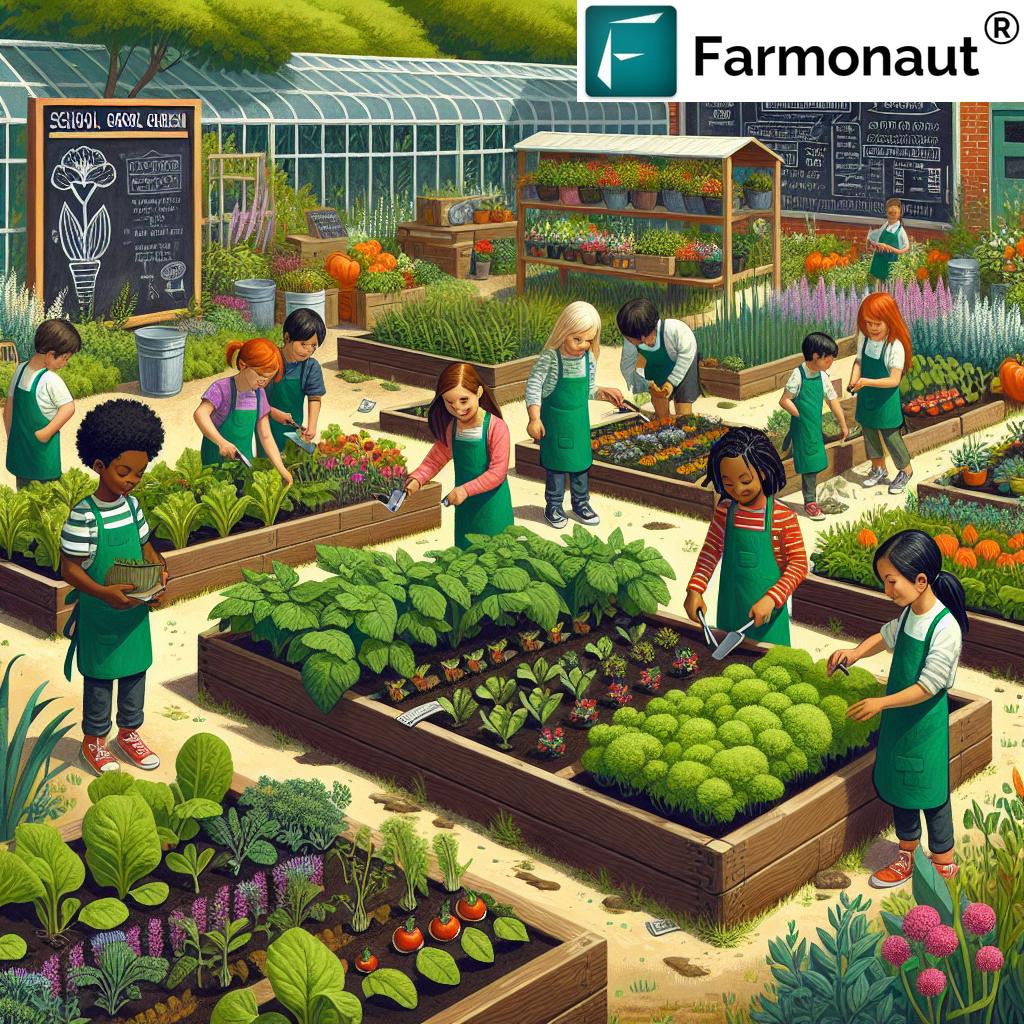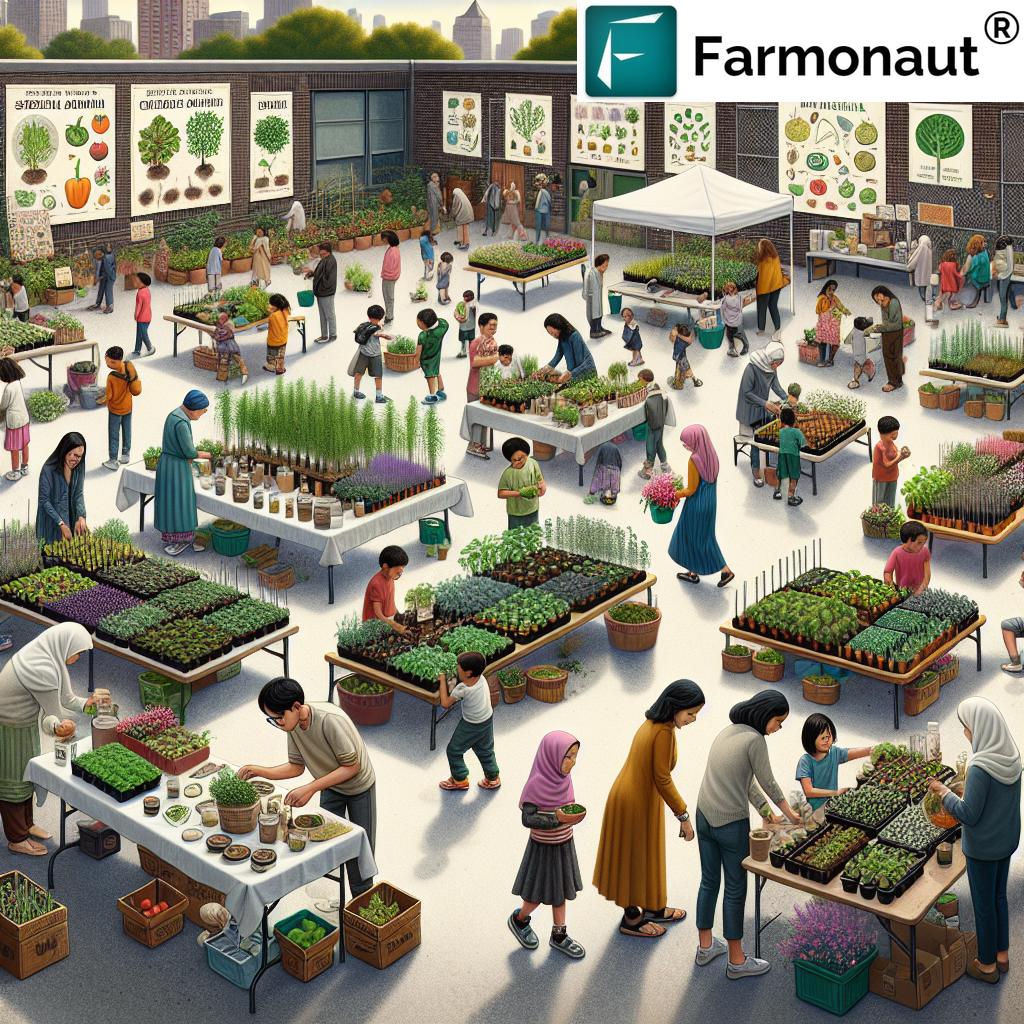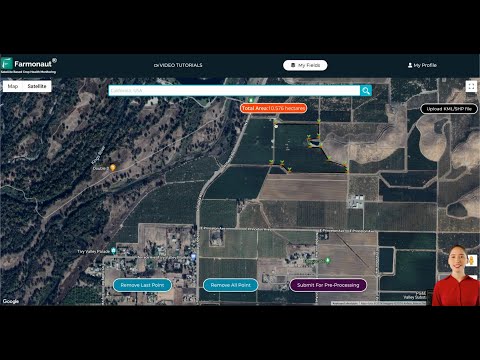Bakersfield Students Grow Sustainable Future: School Garden Program Cultivates Education Through Annual Plant Sale
“The Bakersfield school garden program’s annual plant sale offers 2,500 plants, including vegetables, herbs, and flowers.”
Welcome to our comprehensive exploration of an inspiring school garden program that’s taking root in Bakersfield, California. We’re excited to share how this innovative edible schoolyard initiative is transforming agriculture education for students while promoting sustainable food practices within the community.
Cultivating Knowledge: The Seed-to-Table Journey
At the heart of this program is the belief that hands-on learning experiences in gardening and cooking can profoundly impact a child’s understanding of where their food comes from. The Buena Vista Edible School Yard, part of the Grimm Family Education Foundation, is leading the charge in this green revolution.
Through this initiative, elementary students are immersed in the entire seed-to-table process. From planting tiny seeds to harvesting ripe produce, and finally preparing delicious meals in the kitchen, children gain a holistic understanding of food production and nutrition.

The Annual Plant Sale: Growing Education and Community
One of the highlights of this program is the annual plant sale for education. This event not only supports the school garden but also offers the Bakersfield community a chance to participate in sustainable agriculture. With an impressive 2,500 plants available, including a variety of vegetables, herbs, and flowers, families have the opportunity to start their own home gardens and continue the learning process beyond the school grounds.
Dylan Wilson, Executive Director of the Edible School Yard Kern County, emphasizes the program’s core mission: “A strong model of our program is showing students where their food comes from. And when we speak of students, students are of any age. We see students from kindergarten, transitional kindergarten to adults, and every time we get to engage with them, we get to show them where their food comes from.”
Student Voices: Growing Knowledge and Passion
The impact of this program on students is profound. Soliela Martinez, a long-time participant, shares her experience: “At home, I have my own little garden with my family, so it’s kind of nice to learn here to help at home. It’s really special with the kitchen and the garden because in the garden, we plant stuff, make stuff, and use it in the kitchen to make all the food, which is really good.”
Another student, Eloise Hall, expresses her excitement about the program: “Every month, we switch off between garden and kitchen, and it’s really fun because we get to learn about all the different plants and animals and the cycle of how plants grow.”
Beyond the Garden: Workshops and Community Engagement
The plant sale is more than just a fundraising event. It’s an opportunity for community education and engagement. Attendees can participate in workshops on Gardening 101 and Composting 101, further spreading knowledge about sustainable gardening practices.
This initiative aligns perfectly with the growing trend of integrating agriculture education for students into school curricula. By providing hands-on experiences, the program cultivates not just plants, but also a new generation of environmentally conscious individuals.
The Impact: Transforming Education and Community
To better understand the far-reaching effects of this program, let’s take a look at its impact on both students and the community:
| Aspect | Before Program | After Program Implementation |
|---|---|---|
| Student engagement in agriculture | Low | High |
| Understanding of sustainable practices | Limited | Comprehensive |
| Nutritional awareness | Basic | Advanced |
| Community involvement | Minimal | Active participation |
| Number of home gardens in the area | Few | Significantly increased |
| Variety of plants grown | Limited | Diverse (vegetables, herbs, flowers) |
| Annual plant sale revenue | N/A | Substantial, supporting program continuation |
“The edible schoolyard initiative teaches elementary students the entire seed-to-table process through hands-on gardening and kitchen activities.”
Sustainable Food Practices in Schools: A Model for the Future
The Buena Vista Edible School Yard program serves as a shining example of how sustainable food practices in schools can be successfully implemented. By integrating gardening and cooking into the curriculum, schools can provide students with valuable life skills while promoting environmental stewardship.
This approach to education aligns well with modern agricultural technologies that emphasize sustainability and efficiency. For instance, carbon footprinting tools can help students understand the environmental impact of different farming practices, fostering a deeper appreciation for sustainable agriculture.
Experiential Learning in Gardening: Nurturing Growth Beyond the Classroom
Experiential learning in gardening offers numerous benefits beyond just understanding plant biology. It teaches patience, responsibility, and the value of hard work. Students learn to observe, hypothesize, and draw conclusions based on their hands-on experiences in the garden.
Moreover, these skills can be applied to larger-scale agricultural operations. Tools like fleet management systems demonstrate how technology can optimize resource use in agriculture, a concept that students can relate to their small-scale gardening experiences.

The School Vegetable Garden: A Living Laboratory
The school vegetable garden serves as a living laboratory where students can observe the full lifecycle of plants. From seed germination to harvest, children witness firsthand the miracle of growth and the factors that influence plant health.
This hands-on experience can be complemented by modern agricultural technologies. For example, satellite-based crop monitoring systems, like those offered by Farmonaut, can provide real-time data on crop health and soil moisture. While these technologies are typically used in large-scale farming, introducing students to such concepts can broaden their understanding of modern agriculture.
Gardening Workshops for Students: Cultivating Skills and Passion
The gardening workshops for students offered as part of the plant sale event provide an excellent opportunity for children to deepen their gardening knowledge. These workshops cover various aspects of plant care, soil health, and sustainable gardening practices.
Such workshops can be enhanced by incorporating information about advanced agricultural practices. For instance, discussing the concept of precision agriculture and how technologies like crop advisory systems are revolutionizing modern farming can inspire students to think about the future of agriculture.
Composting Education in Schools: Closing the Loop
Composting education in schools is a crucial component of the program, teaching students about the importance of recycling organic matter and enriching soil naturally. This practice not only reduces waste but also provides a practical lesson in nutrient cycles and soil health.
Composting aligns perfectly with sustainable agricultural practices and can be linked to broader concepts like soil conservation and organic farming. It’s an excellent way to introduce students to the principles of circular economy in agriculture.
The Seed-to-Table Process for Kids: A Comprehensive Learning Journey
The seed-to-table process for kids encompasses every stage of food production, from planting seeds to preparing meals. This comprehensive approach ensures that students understand the interconnectedness of agriculture, nutrition, and cooking.
By participating in each step of the process, children develop a deep appreciation for the effort that goes into food production. This understanding can be further enhanced by introducing concepts like product traceability, which allows consumers to track the journey of their food from farm to table.
The Future of Agriculture Education: Integrating Technology and Tradition
As we look to the future of agriculture education, programs like the Buena Vista Edible School Yard serve as excellent models for integrating hands-on learning with modern agricultural concepts. By combining traditional gardening practices with an understanding of advanced agricultural technologies, we can prepare students for the evolving landscape of farming and food production.
For instance, introducing students to concepts like crop insurance and financing can help them understand the business side of agriculture. While these topics might seem advanced for elementary students, a simplified introduction can plant the seeds for future learning and career interests in agricultural economics or agribusiness.
Community Impact: Growing Beyond School Boundaries
The impact of this program extends far beyond the school gates. By involving the community in the annual plant sale and offering workshops, the initiative is fostering a culture of sustainable living and home gardening in Bakersfield.
This community engagement aligns with the growing trend of urban agriculture and the increasing interest in locally sourced produce. It’s a practical demonstration of how small-scale gardening can contribute to food security and sustainability at a community level.
Scaling Up: From School Gardens to Sustainable Agriculture
While the focus of this program is on small-scale school and home gardens, the principles and practices learned can be scaled up to larger agricultural operations. Students who develop a passion for agriculture through this program may go on to pursue careers in farming, agricultural science, or related fields.
For those interested in exploring how technology is shaping modern agriculture, platforms like Farmonaut offer insights into satellite-based farm management solutions. These tools demonstrate how precision agriculture techniques can be applied to optimize crop yields and resource use on a larger scale.
FAQs About School Garden Programs
- How do school garden programs benefit students?
School garden programs provide hands-on learning experiences, teach students about nutrition and sustainable practices, and foster a connection with nature and food sources. - What types of plants are typically grown in school gardens?
School gardens often include a variety of vegetables, herbs, and flowers, providing diverse learning opportunities for students. - How can communities support school garden programs?
Communities can support these programs by attending plant sales, participating in workshops, volunteering, and donating resources or funds. - Can school garden programs be implemented in urban areas?
Yes, school garden programs can be adapted for urban areas using container gardening, vertical gardens, or rooftop spaces. - How do school garden programs align with curriculum standards?
These programs can be integrated into various subjects including science, math, environmental studies, and even literature, aligning with curriculum standards while providing practical, hands-on learning experiences.
Conclusion: Cultivating a Sustainable Future
The Bakersfield school garden program, with its annual plant sale and comprehensive education approach, is more than just a local initiative. It’s a model for how we can integrate agriculture education into schools nationwide, fostering a new generation of environmentally conscious individuals who understand the importance of sustainable food practices.
By combining hands-on learning with an understanding of modern agricultural technologies, we’re not just teaching children how to grow plants – we’re cultivating the seeds of a more sustainable and food-secure future.
As we look forward, it’s clear that programs like these play a crucial role in shaping our relationship with food, agriculture, and the environment. They remind us that the path to a sustainable future starts in our schools, our gardens, and our communities.
Earn With Farmonaut: Affiliate Program
Earn 20% recurring commission with Farmonaut’s affiliate program by sharing your promo code and helping farmers save 10%. Onboard 10 Elite farmers monthly to earn a minimum of $148,000 annually—start now and grow your income!
Farmonaut Subscriptions
For developers interested in integrating agricultural data into their applications, check out the Farmonaut API and the detailed API Developer Docs.







